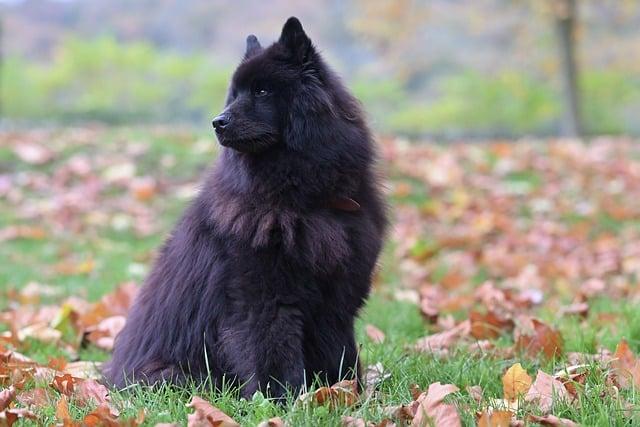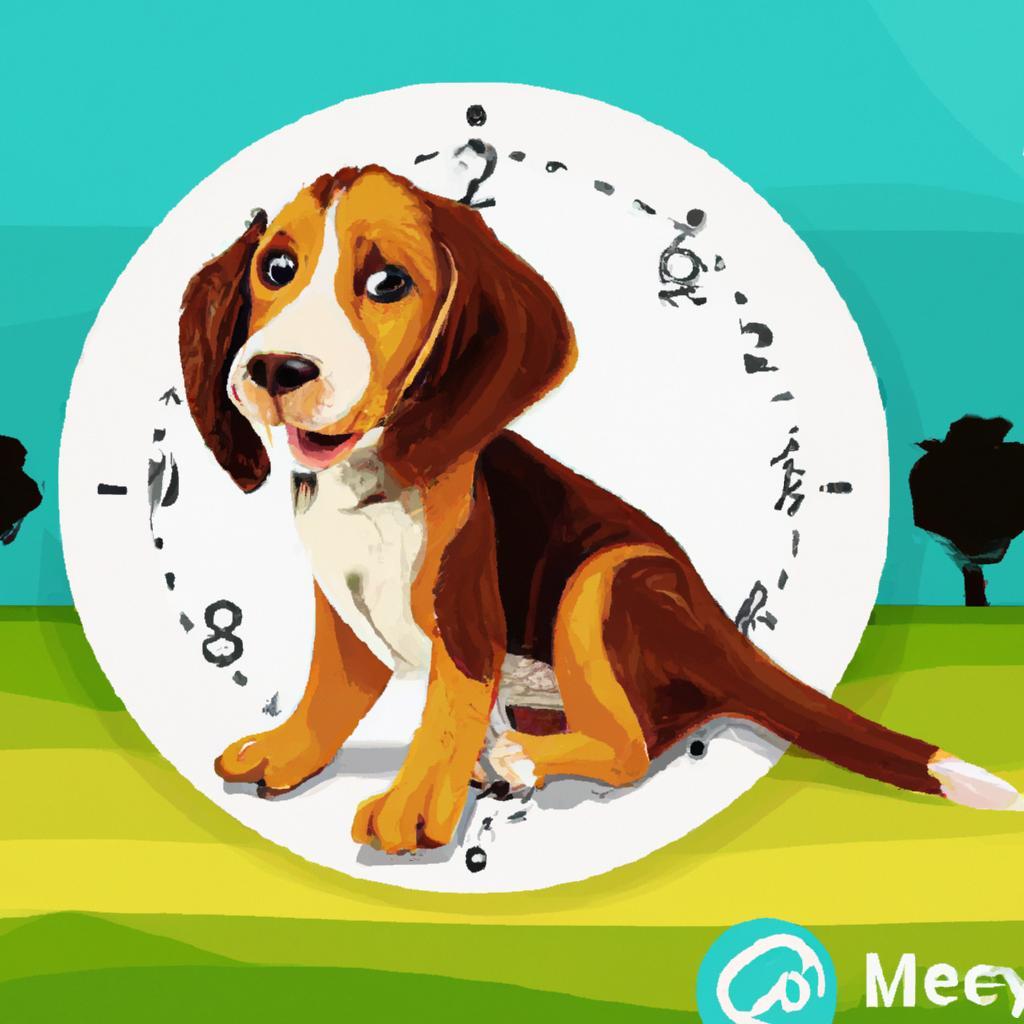In a bustling park, a golden retriever named Max played joyfully with his smaller friends. As he bounded through the grass, onlookers couldn’t help but notice his impressive stature. Max, weighing in at 80 pounds, epitomized the large dog category. But what defines a large dog? Typically, breeds over 50 pounds, like Great Danes and Rottweilers, fall into this category. Large dogs bring unique companionship, loyalty, and protection. If you’re considering a furry friend, don’t overlook the joy a large dog can bring to your life!
Contents
- Understanding the Characteristics That Define Large Dog Breeds
- Evaluating the Benefits of Owning a Large Dog
- Choosing the Right Large Dog for Your Lifestyle
- Essential Care Tips for Maintaining a Healthy Large Dog
- Q&A
Understanding the Characteristics That Define Large Dog Breeds
When exploring the realm of large dog breeds, it’s essential to recognize the defining characteristics that set them apart. These breeds typically weigh over 50 pounds and can reach heights of 24 inches or more at the shoulder. Their impressive size often commands attention, but it also comes with unique needs and traits that potential owners should consider. Understanding these characteristics can help you make an informed decision about whether a large breed is the right fit for your lifestyle.
One of the most notable features of large dog breeds is their **strength and physicality**. These dogs are often built for endurance and power, making them excellent companions for active individuals or families. Breeds like the **Labrador Retriever** and **German Shepherd** are not only strong but also highly trainable, which can be a significant advantage for owners looking to engage in activities such as hiking, running, or even agility training. Their robust nature means they thrive in environments where they can exercise regularly, so it’s crucial to ensure they have ample space to roam and play.
In addition to their physical attributes, large dog breeds often exhibit a **gentle temperament** that belies their size. Many of these dogs are known for their loyalty and protective instincts, making them excellent family pets. Breeds such as the **Golden Retriever** and **Bernese Mountain Dog** are celebrated for their friendly disposition and ability to bond closely with children. This nurturing nature can make them ideal companions for families, provided they receive proper training and socialization from an early age.
Lastly, it’s important to consider the **health and maintenance** aspects associated with large dog breeds. While they can be incredibly rewarding companions, larger dogs may be prone to specific health issues, such as hip dysplasia or heart conditions. Regular veterinary check-ups, a balanced diet, and appropriate exercise are vital to ensuring their well-being. Additionally, grooming needs can vary significantly among large breeds, with some requiring more frequent brushing and care than others. Understanding these factors will help you prepare for the commitment that comes with owning a large dog, ensuring a happy and healthy life for both you and your furry friend.
Evaluating the Benefits of Owning a Large Dog
Owning a large dog can significantly enhance your lifestyle, offering a unique blend of companionship and protection. These majestic animals often serve as loyal guardians, providing a sense of security that smaller breeds may not. Their size can deter potential intruders, making them excellent watchdogs. Furthermore, the presence of a large dog can instill confidence in their owners, fostering a sense of safety in various environments.
Large dogs are also known for their playful and energetic nature, which can encourage a more active lifestyle for their owners. Engaging in regular exercise with a large breed can lead to improved physical health, as these dogs thrive on activities such as running, hiking, and playing fetch. This shared physical activity not only strengthens the bond between owner and pet but also promotes mental well-being, reducing stress and anxiety levels.
In addition to their protective and active qualities, large dogs often possess a gentle and affectionate demeanor. Many breeds are known for their loyalty and love, making them wonderful family companions. Their size can be comforting, providing a sense of warmth and companionship that smaller dogs may not offer. This nurturing aspect can be particularly beneficial for families with children, as large dogs often exhibit patience and playfulness, creating a harmonious household environment.
Lastly, owning a large dog can foster a sense of community and social interaction. Walking a large breed often attracts attention and can lead to conversations with fellow dog lovers. This social aspect can help owners build connections with others in their neighborhood or local parks, enhancing their social life. Additionally, participating in dog-related events or training classes can further expand these connections, creating a supportive network of fellow dog enthusiasts.
Choosing the Right Large Dog for Your Lifestyle
When considering a large dog, it’s essential to evaluate how their size will fit into your daily routine and living environment. Large breeds, typically weighing over 50 pounds, require ample space to move around comfortably. If you live in a small apartment, a large dog may feel cramped and stressed. On the other hand, if you have a spacious home with a yard, you can provide the necessary room for your furry friend to thrive. Think about your living situation and whether it can accommodate the needs of a larger canine companion.
Another crucial factor is your activity level. Large dogs often have higher energy levels and require regular exercise to stay healthy and happy. Breeds like the Labrador Retriever or German Shepherd thrive on daily walks, playtime, and mental stimulation. If you lead an active lifestyle, a large dog can be a perfect match, joining you on hikes or runs. However, if you prefer a more sedentary lifestyle, consider breeds that are known for being more laid-back, such as the Great Dane or the Bulldog, which may be more suited to your pace.
Consider your family dynamics as well. Large dogs can be wonderful companions for families, but their size can also pose challenges, especially with young children. It’s important to choose a breed known for its gentle temperament and patience. Breeds like the Newfoundland or the Bernese Mountain Dog are often great with kids and can handle the roughhousing that comes with family life. Always ensure that any dog you choose is well-socialized and trained to interact safely with children and other pets.
Lastly, think about the long-term commitment that comes with owning a large dog. They often have specific health needs and may require more food, grooming, and veterinary care than smaller breeds. Be prepared for the financial responsibilities that come with their care. Research breeds thoroughly to understand their common health issues and lifespan. By choosing a breed that aligns with your lifestyle, you can ensure a harmonious and fulfilling relationship with your large dog for years to come.
Essential Care Tips for Maintaining a Healthy Large Dog
When it comes to caring for large dogs, understanding their unique needs is crucial for ensuring their health and happiness. **Regular exercise** is one of the most important aspects of their care. Large breeds require ample physical activity to maintain a healthy weight and prevent obesity-related issues. Aim for at least 60 minutes of exercise each day, which can include walks, playtime, and even swimming. Engaging in activities that stimulate both their body and mind will keep them fit and content.
Nutrition plays a vital role in the well-being of large dogs. **Choosing the right diet** tailored to their specific breed, age, and activity level is essential. Look for high-quality dog food that lists meat as the first ingredient and is formulated for large breeds. Pay attention to portion sizes to avoid overfeeding, as large dogs are prone to certain health issues like hip dysplasia and heart problems. Consulting with a veterinarian can help you determine the best dietary plan for your furry friend.
Regular veterinary check-ups are non-negotiable for large dog owners. **Routine health screenings** can catch potential issues early, allowing for timely intervention. Vaccinations, dental care, and parasite prevention should be part of their regular health regimen. Additionally, large dogs may be more susceptible to certain conditions, so discussing breed-specific health concerns with your vet can provide valuable insights into preventive care.
Lastly, grooming is an essential aspect of maintaining a large dog’s health. **Establishing a grooming routine** not only keeps their coat clean and free of mats but also allows for early detection of skin issues or parasites. Depending on the breed, regular brushing may be necessary to manage shedding and maintain a healthy coat. Don’t forget about nail trimming and ear cleaning, as these are crucial for overall hygiene and comfort.
Q&A
-
What weight classifies a dog as large?
A dog is generally considered large if it weighs between 50 to 100 pounds. This classification helps potential dog owners understand the size and space requirements for their new pet.
-
What breeds are typically classified as large dogs?
Common large dog breeds include:
- Golden Retriever
- German Shepherd
- Labrador Retriever
- Rottweiler
- Great Dane
These breeds are known for their strength, loyalty, and companionship.
-
Are large dogs suitable for families?
Yes, many large dog breeds are excellent family pets. They often exhibit friendly and protective behaviors, making them great companions for children and adults alike. However, it’s essential to consider the dog’s temperament and energy level.
-
What are the space requirements for large dogs?
Large dogs typically require more space to move around comfortably. A home with a yard is ideal, but they can also thrive in apartments if given sufficient exercise. Regular walks and playtime are crucial to keep them healthy and happy.
understanding what defines a large dog is essential for potential owners. These majestic breeds bring unique joys and responsibilities. Choose wisely, and you’ll find a loyal companion that enriches your life in countless ways.




